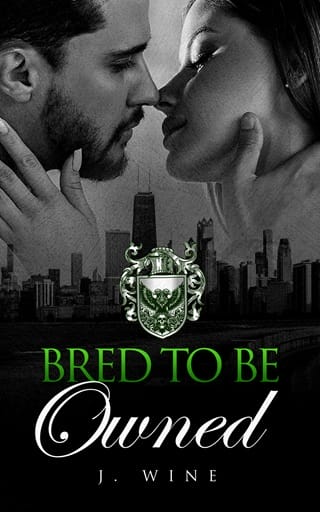Chapter Sixteen
SIXTEEN
SEPTEMBER 1923
Irving Rivkin had a problem.
Thomas Jefferson High School had just opened in Brownsville—a pristine building made of fresh red brick on Pennsylvania Avenue, between Blake and Dumont. The building itself was not the problem, but the new route Irving took to school was. It was on the first day of that new route that Irving made his first real enemy.
Unlike many of the boys in the neighborhood—especially those without fathers—Irving had never joined a gang. His job at the pharmacy kept him too busy, and after his bout with the flu, his mother kept too close an eye on him. He did not pay attention to who ran with which crowd, and without any of that unsavory wisdom, he had no way of knowing that the block on Snediker Avenue between Sutter and Blake had been declared the territory of Freddie Schechter and his crew.
On the first crisp morning of the new school year, Irving said goodbye to his mother and pedaled off on the secondhand bicycle he had bought for himself two summers before. The bicycle made his deliveries easier, especially when the store was busy. He’d gotten it cheap, but he was proud of the purchase; other than the clothes on his scrawny back, it was the one thing Irving could truly call his own. Which was why, when half a dozen boys surrounded him on Snediker Avenue, he held tight to his handlebars and refused to hand it over.
“Give us the bike,” Freddie ordered. Between Freddie’s height and his pocked complexion, he seemed older than his sixteen years. He crossed his arms indignantly over his chest while his buddies blocked Irving’s path.
Irving tried his best to sound confident. “Get one of your own,” he said.
“Very funny,” Freddie said. He uncrossed his arms, threw back his shoulders, and moved toward Irving with a nasty grin. “I said, get off. Or you’ll regret it.”
The other boys echoed the message. “You’d better do what Freddie says. Nobody says no to him on this block.”
Before they had the chance to come any closer, the squeak of a window sash struggling against a frame cut through the noise of their threats. Across the street, an elderly woman popped her head out of a second-story window. Irving recognized her immediately—Mrs. Levinson was a regular at Stern’s Pharmacy. From her perch, she pointed an angry finger at the mob. “You leave that boy alone!” she shouted. “I haven’t had a moment of peace from you since you started hanging around. Get out of here now, or I’ll call the police! I know all your names, so don’t think I won’t!”
In the confusion that followed, Irving sped away, but in his haste to make the best of the opportunity, he accidentally ran over Freddie’s toes. The last thing Irving saw as he pedaled away was Freddie Schechter hopping up and down on one foot, shouting a string of curses into the wind.
For all the next week and several more that followed, Irving avoided Freddie’s block. He managed to elude Freddie at school, mostly because the boy never came to class. But a month into the new school year, as Irving passed by that treacherous corner, he saw something from a few yards away that caused him to come to a stop on the sidewalk.
Freddie and his goons were teasing a boy, a kid no more than ten years old. They’d snatched the cap off his head and were tossing it to each other, out of the boy’s reach. While they played catch with the cap, they jeered at the boy and called him names.
“Look at him, Freddie, I think he’s gonna cry.”
“Are you gonna cry, baby ?”
“Why doncha go home and cry to your mother?”
“I bet the baby still wears diapers. Should we see if I’m right?”
Irving watched silently from the corner as the talk turned increasingly menacing. Eventually, however, Freddie spotted him and pointed him out to the others.
“Look who’s back!” Freddie shouted. “Where ya been, Irv? Doncha wanna be sociable? See the new friend we made here? He ain’t afraid of us, are ya, kid?”
The little boy’s eyes filled with tears, but he shook his head and kept his chin high.
“See that?” said Freddie. “Ain’t the baby brave?”
Irving couldn’t help himself. “Stop it,” he said. “Why don’t you leave the kid alone?”
Freddie’s grin was as wide as Pitkin Avenue. “Come and make me,” he said.
Irving rode shakily to the middle of the block, where two of Freddie’s cronies pulled him off his bike and held him by his arms as he struggled against them. The assault unfolded so quickly that he barely knew what was happening, until he felt Freddie’s fist in his stomach.
“That’s for running over my foot,” said Freddie. He delivered a second blow to Irving’s face. “And that’s for being such a wiseass.”
Blood erupted from Irving’s nose, gushing over his lips and chin. The little boy began to cry in earnest then, and a dark spot bloomed at the front of his breeches. Next he crumpled to the ground as if he’d been punched in the nose himself.
One of Freddie’s friends let out a whistle. “I guess he ain’t wearing diapers after all.” He chuckled.
Disgust flashed over Freddie’s features. “Ugh,” he said. “Did you piss yourself, kid?”
“Let him go,” Irving muttered, still trying to pull out of his enemies’ grip.
“Suppose I do? What’ll you give me?” Irving could tell that Freddie’s satisfaction at teasing the child had dissipated. Freddie was beginning to get bored, and Irving was smart enough to know that he might use that boredom to his advantage. No matter what Irving said next, he was sure to lose his bike, but if he offered Freddie a quick resolution in the guise of a negotiation, the nasty incident could come to an end without any damage to Freddie’s reputation.
“If you let us both go, you can have the bike.”
Freddie pretended to consider the offer, but Irving knew what his answer would be.
“Fine,” said Freddie. “But you’d better scram. Get outta here, both of you, before I change my mind.”
Irving motioned to the child to get up from the ground. “Come on, kid,” he said gently. “Didn’t you hear? We gotta go.”
The little boy remained on the sidewalk, crying into his sleeve.
“Please?” said Irving, trying again. It was the please that finally broke the boy’s trance. He rose from the ground and made a beeline for Irving, who practically carried him to the end of the street. Once they were safely on a different block, Irving asked the boy for his address. “Don’t worry, I’ll walk you home,” Irving said.
The little boy nodded and—before Irving could object—grabbed and held tightly to his left hand. They walked slowly and companionably along together until the boy was calm enough to speak. “My name is Sammy. What’s yours?”
“I’m Irving,” said Irving. “How old are you?”
“Eight and a half. How old are you?”
“Seventeen,” said Irving, using his free hand to wipe the drying blood from his chin. “How come you were on that block, anyway? It’s nowhere near the elementary school.”
“I got lost,” Sammy said. “Usually, my sister Lois walks me, but she’s home sick with a cold today.”
Sammy lived in a brownstone, up on Glenmore Avenue. The steps were freshly swept and painted, and the round brass handle of the door had been polished to a shine. When Sammy’s mother—at least that’s who Irving assumed she was—opened the heavy paneled door, her eyes narrowed at the sight of them. “Sammy, why are you home from school? And why are your clothes such a mess?” The woman in the fine silk dress looked from Sammy’s breeches to Irving’s bruised and bloody face. “What happened to your friend?”
“This is Irving,” Sammy said. “He rescued me and brought me home.”
“Rescued you from what ?” the woman asked, pulling the boy firmly toward her and pressing him against the folds of her skirt. She was calmer than most mothers would have been, thought Irving. Calmer, cooler, and surprisingly indifferent about the possibility of ruining her expensive clothes. As she bent down to check Sammy’s body for bruises, he told her about the gang that had harassed him, and how Irving’s bravery in the face of such danger had resulted in the loss of his beloved bicycle. The woman turned her attention to Irving’s nose. “If it’s any consolation, your nose isn’t broken.”
“How do you know?”
She smiled knowingly. “I’ve seen my fair share of broken noses. Your face certainly is a mess, though. Would you like to come in and use the washroom?”
Irving could see over the woman’s shoulder to the cozy living room behind her. The tangy scent of braising beef (was there a brisket in the oven?) permeated the spotless foyer. To his embarrassment, Irving could not squelch the anxious grumbling of his stomach. “I’m fine, ma’am,” he said. “I don’t want to spill blood on your floor or anything. I’ll go wash up at home.”
“Blood has never bothered me, young man, but I understand you wanting to get home. Thank you for being so good to our Sammy. His father will want to thank you, I’m sure.” She tilted her head. “What’s your last name?”
“Rivkin,” said Irving. “And it was no big deal. Sammy is a real sweet kid.” He leaned over and ruffled the little boy’s hair. “See you around, Sammy,” he said. “Promise me you’ll stay off that block, okay?”
Sammy nodded solemnly. “I promise,” he said.
The next day Irving walked to school, wondering along the way if he’d ever see the boy again. When he got to the pharmacy, around four o’clock, Solomon Stern was waiting with a concerned look on his face. “I had a visitor a few hours ago,” he said. “He left something here, with strict instructions to make sure you got it as soon as you arrived.”
Now it was Irving’s turn to be concerned. “Who was it?” he asked. “What did he leave?”
Mr. Stern relaxed his shoulders, reassured by Irving’s obvious confusion. He jerked his thumb toward the stock room and motioned for the boy to follow him inside. There, parked in front of a tower of boxes, was a new Schwinn Excelsior bicycle in shiny red, white, and chrome. Irving let out a gasp. “Is that… someone left that for me ? I don’t understand. Who was it, Mr. Stern?”
Mr. Stern shut the stock-room door and lowered his voice so that the customers wouldn’t hear. “Do you know who Zip Diamond is?”
Irving frowned. “Wasn’t he involved with the World Series scandal? He’s one of the guys they say helped Arnold Rothstein fix it?”
Mr. Stern nodded. “Exactly. Rothstein and the other big shots wanted him out of Manhattan after that, told him to lay low for a while. They sent him to Chicago for a couple of years, but I guess he’s back in Brownsville now.”
“What’s that got to do with me?”
“He was my visitor,” said Mr. Stern.
The realization dawned on the boy slowly, like the sun poking through the clouds. “But why would Zip Diamond want to give me a bicycle? And how does he know I work for you?”
“A man like Mr. Diamond can find out anything. He has plenty of friends who can get him information. He found out you work here, for me, and he thought it might be better to leave the bike here so as not to trouble your mother with it. As for why he got it for you, it seems you helped his son yesterday. The boy told his father what you did for him and that you lost your bicycle because of it.”
“Freddie Schechter was bullying him, so I gave Freddie my bike to let the kid go. You’re saying Sammy is Zip Diamond’s son?”
Mr. Stern nodded and clapped one hand on Irving’s bony shoulder. “You’re a good boy, Irving, with a good heart. Mr. Diamond was very grateful. He bought a few items for his wife and asked that you deliver them to his house this afternoon. Do you remember where it is?”
“Of course.”
“All right, then, I’ll give you the package and you can take it over now. I think it’s best not to keep a man like Mr. Diamond waiting for too long.”
Before the two of them left the stock room, Irving couldn’t help noticing that Solomon Stern’s face was blanketed with worry.
“Is there anything wrong, Mr. Stern?”
“I want you to be careful,” the pharmacist told him. “Zip Diamond is a good man to have in your corner, and right now he is in your debt. But a man like that is dangerous, Irving—not only to his enemies but to his friends, too. Be polite. Thank him for the gift, of course, but whatever you do, don’t get too close. With someone like Diamond, it’s best to keep your distance. Be respectful, but not too friendly. Don’t offer to do him any favors. You’re a smart young man with a bright future ahead of you. If he gets his hooks into you, he won’t want to let go.”
Though Irving understood what Mr. Stern was trying to say, the little speech left him with more questions than answers. Still, something deep in the center of his gut told him the pharmacist was right.
Back at the house on Glenmore Avenue, Mrs. Diamond was expecting him. “Irving Rivkin,” she said smoothly. “You clean up nicely, young man.” She took the package from him without asking and led him into the living room.
“Look who’s here, sweetheart,” she said to the slender, hard-looking man in a chair by the window. Zip Diamond looked up from his newspaper and shot Irving a crooked smile. A cloud of confidence surrounded the man, wafting off his skin like expensive cologne. His suit was immaculately tailored, and his tiepin was made of solid gold. In a nod to his surname, he wore a large diamond pinkie ring that sparkled fiercely in the fading afternoon light. The grip of his handshake was so ferocious that Irving lost all the sensation in his fingers.
Zip looked Irving up and down. “You hungry? Thirsty?”
Irving shook his head. “No, sir. Thank you.”
“Have a seat. Did ya get the bicycle? How does it ride?”
“It’s terrific, sir. Thank you very much.”
“That was my wife’s idea,” Zip said. “Listen, Irving. It’s Irving, isn’t it? What you did for my Sammy was a real nice thing. When he told me about those other punks… well, let’s just say that Schechter kid and his friends won’t be bothering anyone anymore.”
Irving blinked a few times at his host. “Did you talk to their parents?”
Zip Diamond chuckled. “Nah,” he said. “I talked to those kids myself. They won’t go near Sammy or you again.”
Irving didn’t know how to respond, so he thanked Mr. Diamond again.
“How old are you, kid?” Zip Diamond asked.
“Seventeen, sir.”
“Seventeen, huh?” Zip looked thoughtful. “I had a nice talk with your boss this morning. He said you were a real good worker. Responsible, intelligent. You show up on time and you work hard, he said. Only you and your mom at home, I heard?”
“Yes, sir. That’s right. My older brother goes to college in Albany. My father left when I was three.”
“And do you like school as much as your brother?”
Irving gave the man a sheepish smile. “My mother says my brother got the book smarts and I got the street smarts. I had to repeat a couple of grades. But I promised her I’d get my high school diploma.”
Zip’s laugh was warm and cold at the same time. “Well, Irving, I’m real appreciative of what you did for my Sammy, and I’m happy you came to see me today. If you ever need anything, you let me know. Don’t hesitate to come to me. I hope to see you again real soon.”
“Thank you, sir. It was nice to meet you.”
As Zip went back to his newspaper, Mrs. Diamond walked Irving to the door. “Your mother sounds like a smart woman,” she said. “Listen to her and stay in school. You’ll have plenty of time after that.”
“Time for what, ma’am?” Irving asked.
Mrs. Diamond’s tone was cryptic. “We’ll just have to see,” she said.
As he rode back to the store on the new bicycle, Irving was certain that everyone he passed could hear the uneasy pounding of his heart. He could not say exactly what he’d expected, but his meeting with Zip Diamond felt significant and strange. What had the man meant when he mentioned that Freddie wouldn’t bother him again? What exactly had Zip Diamond said to bring boys like Freddie and his friends to heel?
Then there was the matter of Zip’s goodbye. Don’t hesitate to come to me. I hope to see you again real soon. It was as if Solomon Stern knew exactly what would happen, exactly what a man like Zip Diamond would say. Having grown up without a father, Irving didn’t have much experience with paternal-sounding advice, but he was certain of at least one thing: if he had to choose one of those men to trust, he’d pick Solomon Stern any day of the week.
Irving was so flustered by Mr. Diamond that he gave no further thought to his wife’s parting words.
 Fullepub
Fullepub 



